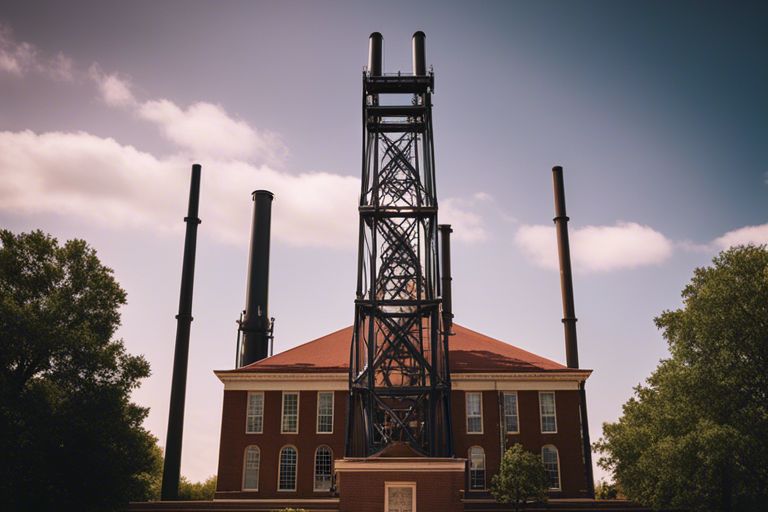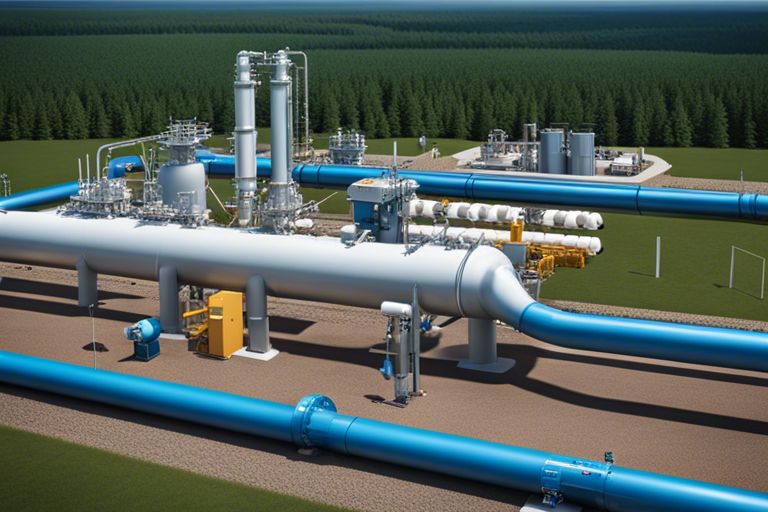Intersection between oil and the University of Oklahoma runs deep, shaping the institution’s history, economy, and reputation. At the heart of this relationship lies a long-standing partnership that has significantly benefited both parties. The financial contributions from the oil industry have fueled research, infrastructure development, and student scholarships, propelling the university to academic excellence. However, this alliance is not without its controversies, as concerns regarding environmental impact and ethics continue to stir debate on campus and beyond. Delving into this intricate connection exposes the complex dynamics between academia and industry, shedding light on the challenges and opportunities it presents.

Key Takeaways:
- Historical ties: The significant relationship between the University of Oklahoma and the oil industry dates back to the early 20th century.
- Financial impact: The oil industry has played a crucial role in funding research, programs, and infrastructure at the university.
- Academic opportunities: Students at the University of Oklahoma benefit from educational and career opportunities in the oil and gas sector due to its proximity and partnerships.
- Research contributions: The university’s research in the field of oil and gas has led to innovative technologies and solutions for the industry.
- Current controversies: The intersection of oil and academia has sparked debates on divestment, environmental sustainability, and ethical responsibilities of universities in supporting the fossil fuel industry.
Historical Context
The Emergence of Oil Industry in Oklahoma
The oil industry has played a significant role in shaping the history of Oklahoma. Any exploration efforts in the late 19th and early 20th centuries led to the discovery of vast oil reserves across the state, transforming it into one of the major players in the oil market. This discovery not only fueled economic growth but also attracted investors and professionals to the region.
Development of Petroleum Engineering at the University of Oklahoma
The University of Oklahoma has been at the forefront of on developing expertise in petroleum engineering to support the booming oil industry in the state. For instance, the university established the Mewbourne School of Petroleum and Geological Engineering, which offers specialized programs and conducts cutting-edge research in the field. This has not only trained generations of professionals but has also contributed to technological advancements in the industry.
Academic Impact
Petroleum and Geological Engineering Programs
You, as a student at the University of Oklahoma, have the unique opportunity to immerse yourself in world-class Petroleum and Geological Engineering Programs. These programs offer a comprehensive education in the exploration, extraction, and management of oil and gas resources. The university’s close proximity to the thriving oil industry in Oklahoma provides students with hands-on experience and valuable industry connections.
Research Contributions and Innovations
An crucial part of the University of Oklahoma’s academic impact is its Research Contributions and Innovations in the field of oil and gas. The university’s faculty and researchers are at the forefront of developing innovative technologies for more efficient and sustainable oil extraction. Their work has led to breakthroughs in reservoir modeling, enhanced oil recovery techniques, and environmental impact mitigation strategies.

Economic and Community Ties
University Partnerships with Oil Companies
Once again, the University of Oklahoma’s relationship with the oil industry is evident through its partnerships with various oil companies. These collaborations often involve research projects, internships, and funding opportunities that contribute to the advancement of oil technology and education.
Job Creation and Workforce Development
Ties between the University of Oklahoma and the oil industry extend to job creation and workforce development. The university plays a crucial role in preparing students for careers in the oil sector through specialized programs and training initiatives. This partnership helps bridge the gap between academia and industry, ensuring a steady supply of skilled professionals for the oil and gas workforce.
To further strengthen the ties between the university and the oil sector, industry-specific courses and workshops are offered to equip students with the necessary knowledge and skills. These initiatives not only benefit the students by enhancing their job prospects but also contribute to the overall economic growth and stability of the community.
Environmental and Ethical Considerations
Sustainable Practices and Energy Transition Initiatives
Your university is committed to implementing sustainable practices and energy transition initiatives to reduce its environmental impact. The university has invested in renewable energy sources such as solar panels and wind turbines, aiming to decrease carbon emissions and promote a greener campus. These initiatives play a crucial role in mitigating climate change and setting an example for other institutions.
Ethical Discussions within the University Community
The university fosters ethical discussions within the university community, addressing the ethical implications of its ties to the oil industry. This dialogue encourages critical thinking and reflection on how the university’s partnerships align with ethical values and social responsibility.
Plus, the university conducts forums, seminars, and workshops to engage students, faculty, and staff in meaningful conversations about the ethical considerations surrounding oil extraction and its impact on the environment. These discussions help raise awareness and promote accountability in decision-making processes.
FAQ
Q: What is the intersection between oil and the University of Oklahoma?
A: The University of Oklahoma has deep ties to the oil industry, with many donors, research projects, and educational programs focused on oil and gas exploration and production.
Q: How does the University of Oklahoma benefit from its relationship with the oil industry?
A: The university receives significant funding and support from oil companies, which helps fund research, scholarships, and infrastructure improvements.
Q: What research is being conducted at the University of Oklahoma related to oil?
A: The university conducts research on various aspects of the oil industry, including drilling techniques, environmental impact studies, and alternative energy sources.
Q: Are there opportunities for students at the University of Oklahoma to get involved in the oil industry?
A: Yes, the university offers internships, networking events, and career fairs that connect students with oil companies for potential job opportunities.
Q: How does the University of Oklahoma address concerns about the environmental impact of the oil industry?
A: The university has established research centers and initiatives focused on sustainable energy solutions, carbon capture technologies, and environmental conservation efforts related to oil and gas production.
Q: What role does the oil industry play in shaping the curriculum at the University of Oklahoma?
A: Oil industry professionals often serve as guest lecturers, advisors, and mentors for students, helping shape curriculum to ensure it remains relevant and up-to-date with industry trends.
Q: How can the general public stay informed about the relationship between oil and the University of Oklahoma?
A: The university regularly publishes research findings, hosts public events, and maintains transparency about its partnerships with the oil industry to keep the public informed and engaged in the conversation.




